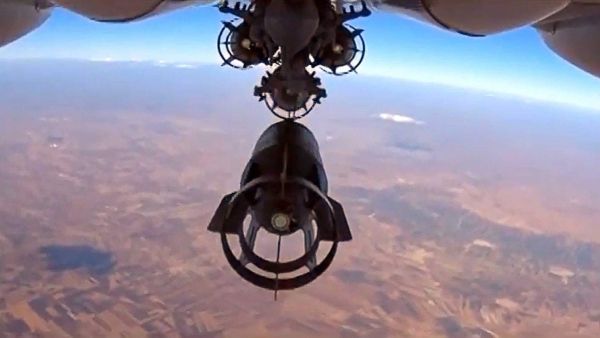Last week, airstrikes from the US-led coalition and Russia fixed their sites on a common goal—crippling the financial well that is Daesh’s oil supply, the most productive of which is just 90 miles southeast of their de facto capital Raqqa, in Deir Ezzor.
In a move many said represented a change in tactics from the West, warplanes targeted hundreds of strikes at oilfields, trucks used for transport, munitions depots, command centers and trade routes across the city.
A report last October indicated Daesh oil profits reach some $4 million a day, so destroying the ability to produce it could stem the group's growth. But that's not the only consequence.
Deir Ezzor resident Tim Ramadan (a pseudonym) told Vice news that while airstrikes target Daesh facilities, they would likely also hurt civilians, because as facilities surrounding the city get bombed, the price of oil is shooting up.
Ramadan is an activist with Raqqa is Being Slaughtered Silently—the anti-Daesh group reporting on life inside the caliphate. He said there group’s crippling besiegement has already left residents unable to pay for basic necessities. Just a few months ago, it was pegged as having the highest bread prices in Syria, by a landslide. The same is happening now with fuel.
According to Vice’s count relayed by Ramadan, the price of a barrel of heating oil in the city was around $50 before last week’s bombings. Now it’s roughly $170.
"Civilians will not be able to buy fuel this winter," he said. "It's already very, very cold.”
Last week's targets were only the most recent in a growing list of airstrike sites in and around Raqqa. And as international eyes fix on the city, civilians are caught in the middle—in more ways than one.
[h/t Vice]







